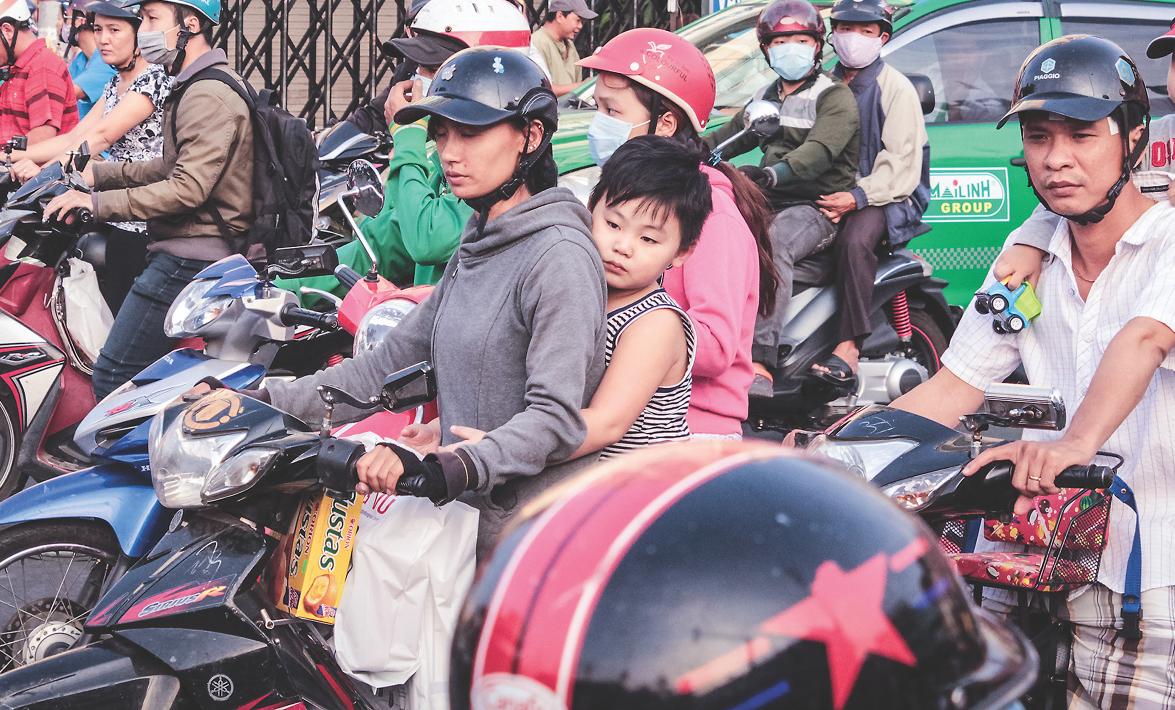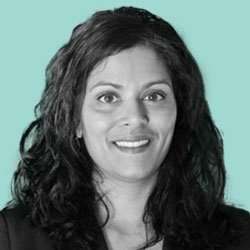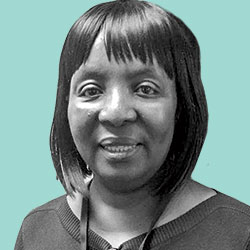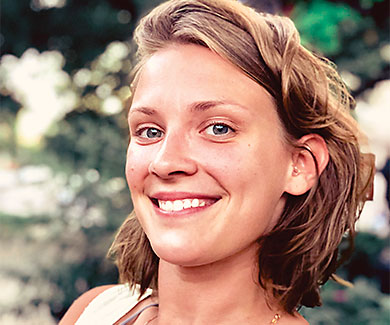
Health and Wealth
International public policy conference will highlight the health costs of the rich-poor gap.
Extreme income inequality can harm a society’s overall health—even to the point of shortening life expectancy.
“Greater economic inequality is associated with worse health outcomes, and research indicates that people live longer in nations with lower levels of income inequality,” says Keshia Pollack Porter, PhD ’06, MPH, who will participate in a plenary panel on the topic at the 2019 International Conference of the Association for Public Policy Analysis and Management July 29–30 in Barcelona, Spain.
The Johns Hopkins University-Pompeu Fabra Public Policy Center, codirected by Pollack Porter—the newly appointed associate dean for faculty development—is hosting the conference, titled “Public Policy in an Era of Rapid Change.” The conference, which attracts leaders in policy and management in 16 policy areas, as well as public health students and professionals, will feature more than 50 sessions on topics that include demographic trends, immigration and refugees, and emerging technologies.
Vicente Navarro, MD, DrPH ’68, director of the JHU-UPF Public Policy Center and conference co-chair with Pollack Porter, will join her as part of the plenary panel on income inequality and health.
“We will explore how it plays out in the United States, which tends to frame the issue as one of racial and ethnic disparities, and in Europe, where there is more discussion about economic class,” Pollack Porter says.

There Are No Accidents
Child injury prevention experts gather to keep kids safe.
Injuries claim the lives of nearly 830,000 children each year. Even worse, the deaths are largely preventable.
Road traffic injuries and drownings are the top killers of children globally. Burns, falls and poisonings constitute the majority of child injuries.
“The moment a child becomes mobile, their risk for an injury increases exponentially,” says Abdul Bachani, PhD ’11, MHS ’08, assistant professor in International Health and director of the Johns Hopkins International Injury Research Unit.
Mitigating these hazards can be especially challenging in low- and middle-income countries. Enacting child safety laws such as mandatory car seats may not be a priority, for example, and even with legislation in place, car seats may not be available or affordable.
At PrevCon, held every other year, JH-IIRU joins a global gathering of child injury experts to share the latest child injury prevention knowledge and strategize ways to advance policy and advocacy in the field. At this year’s meeting, July 17–20 in Washington, D.C., Bachani will moderate a panel on how community-based organizations can use data more effectively to demonstrate the impact of child injury prevention programs.
“Unintentional injuries are not accidents or an act of fate,” Bachani asserts. “Injuries are preventable.”

Hearing the Call
Cochlear Center launches training program for hearing loss researchers from Asia.
More than a billion people in East Asia will be over age 60 by 2050, a demographic explosion with enormous public health consequences—including widespread age-related hearing loss and associated effects on cognition and mental and emotional health.
Meeting that challenge—and laying the groundwork in the region for foundational epidemiologic research, clinical trials and evidence-based interventions addressing age-related hearing loss—is the purpose of the East Asian Fellows Summer 2019 Program. The session, sponsored by the Johns Hopkins Cochlear Center for Hearing and Public Health, will be held July 15–19 at the Bloomberg School.
The inaugural program, which will welcome 36 fellows, is aimed at clinicians and researchers from East Asian countries interested in addressing hearing loss among older adults. More than 100 people applied to the free program.
“Hearing and effective communication are foundational to health, and hearing loss is a critical pathway to morbidity in older adults,” says Frank Lin, MD, PhD ’08, director of the Cochlear Center and a leading researcher on the links between hearing loss and health impacts such as dementia and depression. “Because we know that hearing loss is potentially a modifiable risk factor, treating it may have a large overall effect on public health.”
In many East Asian countries, hearing loss in older adults has been essentially ignored, says Lin, in part because it is viewed as a normal part of aging, and because hearing isn’t effectively integrated into health care for other issues related to aging. Many parts of the region do not have an established clinical field of audiology dedicated to diagnosing and treating hearing loss. Instead, hearing problems are largely handled by ear, nose and throat doctors or technicians who sell hearing aids.
The East Asian Fellows Program will cover epidemiology, biostatistics, clinical trials, intervention design and select clinical topics in otolaryngology, audiology and geriatrics. “We want to train people by bringing them here for a one-week survey course,” says Lin, “to help identify talented clinicians and researchers who we can continue to collaborate with to address the impact of hearing loss and aging in East Asian countries.”
In Case You Missed It
The Word on Wolfe Street
Follow
“There’s a growing interest in coming up with ways to attack poor sleep as a possible way to prevent Alzheimer’s,” Adam Spira says of the potential link between sleep disturbance and dementia in the May 2019 issue of Scientific American (paywall).
Listen
The launch of the world’s first malaria vaccine is a “landmark” moment, says William Moss in an April 23 NPR story, but he notes that the vaccine has a much lower efficacy than some other childhood vaccines.
Read
An April 22 Reuters story features Kellan Baker’s findings that transgender adults in the U.S. have worse health-related quality of life than people whose gender matches their sex at birth.
Being transgender in the U.S.—in a society that you know doesn’t fully accept you—affects your health in negative ways. That’s why nondiscrimination protections for transgender people are public health issues.
Share this: What gives you hope?

Rupali Limaye
International Health
I am incredibly hopeful that we will elect more women to Congress in 2020, as articulated by RBG [Ruth Bader Ginsburg]: Women belong in all places where decisions are being made.

Stella Babalola
Health, Behavior and Society
I have hope that the tangible and intangible resources (information, skills, agency, products) to make healthy decisions about one’s sexuality will be available to the majority of adolescent boys and girls in urban and rural communities across sub-Saharan Africa by 2025.
Events Watch
Stopping the Cycle
3 Questions for Rebecca G. Williams
The shooting deaths of 17 Marjory Stoneman Douglas High School students in 2018 galvanized a youth-led movement against gun violence. In response, the Center for Gun Policy and Research will hold a Summer Youth Institute July 8–11 for teens committed to preventing gun violence. Rebecca G. Williams, Institute project manager and MSPH student, has details.
What type of students do you hope to attract?
We want to bring together youth [who are] impacted by gun violence in all its forms, whether it’s gun violence in their community, losing a loved one to suicide or growing up with guns in the home.
What’s in the Institute curriculum?
An overview of research and laws from Center faculty, exercises on framing advocacy messages via social media, practice in answering questions about the issue, discussion groups and visits from local organizations working on the issue.
What do you hope students take away from the Institute?
We hope they leave with a toolkit of advocacy skills—based on the best available evidence—to give them the opportunity to transform their passion for change into action.
